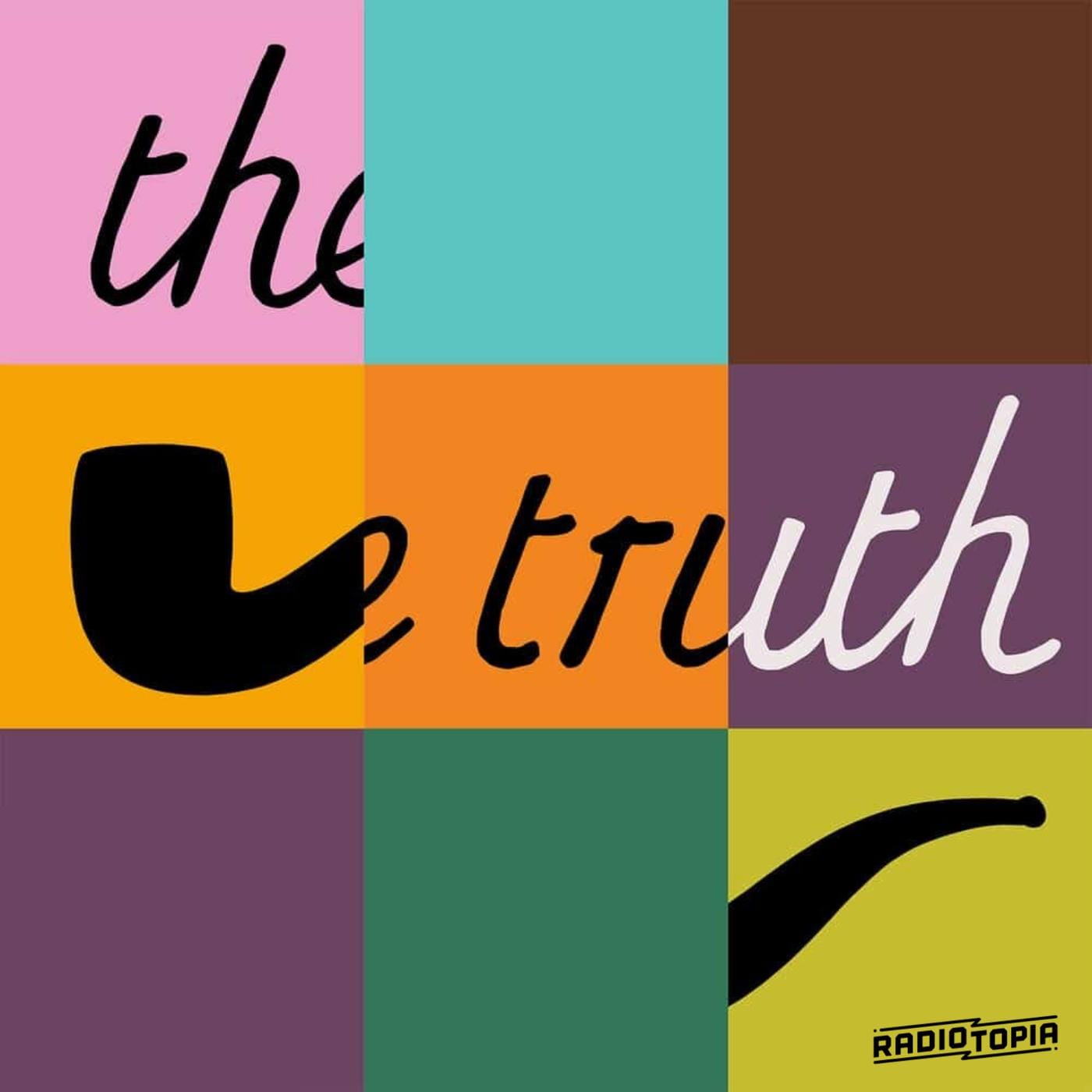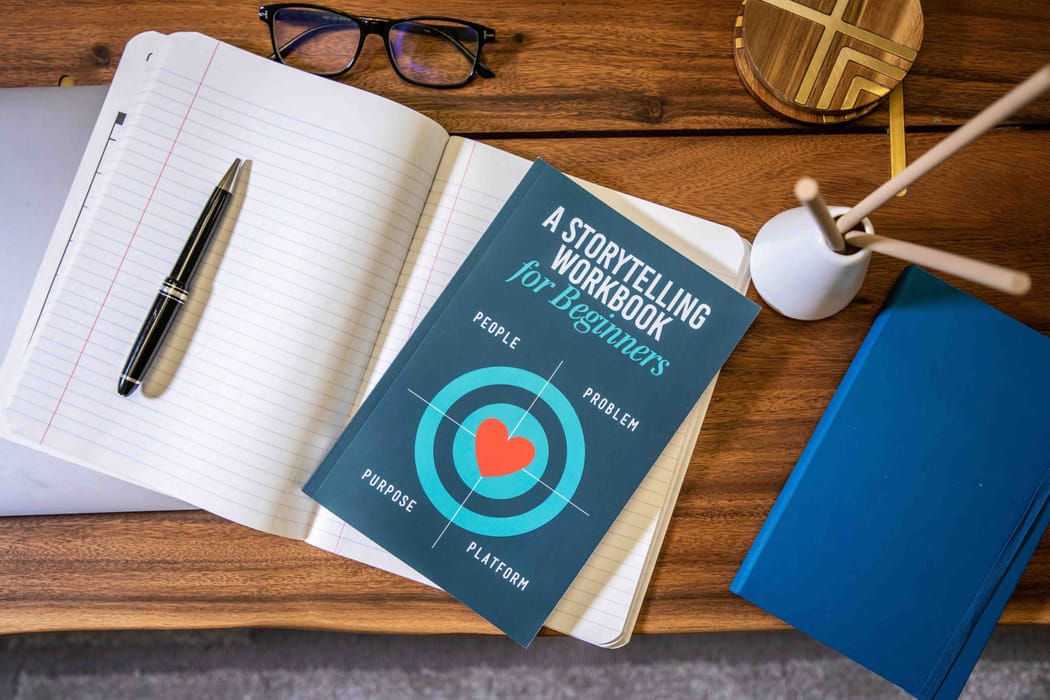Podcasting is more than just sharing information. It’s about connecting with your audience on a deeper level. And how do you do that? Well, through the power of storytelling.
Storytelling is the magic that turns a good podcast into a great one. So, if you’re ready to captivate your listeners and keep them coming back for more, mastering the art of storytelling is your next step.

Book Your Next Podcast Guest the Easy Way
With more than 70,000 members, MatchMaker.fm is the largest online community connecting podcasters & guests.
Join MatchMaker todayUnderstanding the Power of Storytelling for Podcasters
Storytelling is the heartbeat of podcasting. It turns a series of facts or interviews into something memorable and engaging. When podcasters tell a story, they connect with listeners emotionally, making the content more relatable and impactful.
A well-told story can captivate an audience, drawing them in and keeping them hooked from start to finish. This emotional engagement makes the content more enjoyable and helps listeners retain the information.
In a crowded podcasting landscape, mastering storytelling can set your show apart, transforming it from just another audio experience into something listeners look forward to week after week.
The 3 Storytelling Formats in Podcasting
Now let’s cover the various formats of storytelling podcasters can use to
1. Narrative Podcasts
Narrative podcasts are all about telling a story from start to finish. These podcasts often resemble audio dramas with a clear beginning, middle, and end. They can range from fictional tales to non-fiction accounts, weaving together elements like character development, plot twists, and emotional arcs.
Narrative podcasts thrive on structure and pacing, drawing listeners in with exciting stories that unfold over time. This format is ideal for podcasters who enjoy creating unique stories and guiding their audience.
2. Interview-Based Storytelling
Interview-based storytelling combines the art of conversation with narrative elements. Instead of simply asking questions, podcasters use interviews to uncover personal stories, insights, and experiences that fit into a larger narrative.
The key is to weave the interviewee’s responses into a cohesive story that engages listeners. This format is great for creating intimate, relatable content, focusing on the human experience and real-life stories that resonate with the audience.
3. Episodic vs. Serialized Storytelling
Episodic storytelling means each episode stands alone, with a self-contained story or topic, making it easy for listeners to jump in at any point.
On the other hand, serialized storytelling tells a story over multiple episodes, each building on the previous. This format requires a commitment from listeners to follow along, but it can be incredibly rewarding as the story unfolds over time. Deciding which format to use depends on your podcast’s goals and how you want to engage your audience.
8 Essential Tips for Mastering Storytelling for Podcasters
Now that you understand the power of storytelling in podcasting and the various formats, let’s dive into how you can master this art. Whether you're just starting out or looking to refine your skills, these essential tips will help you create captivating narratives that resonate with your audience.
1. Finding Your Unique Voice
Your voice is what makes your podcast stand out. It’s the distinct tone, style, and perspective that you bring to your stories. Finding your unique voice involves experimenting with different approaches until you discover what feels most authentic. Whether it’s a conversational tone, a more formal delivery, or something unique, your voice should reflect your personality and resonate with your target audience.
2. Building Relatable Characters & Scenarios
Characters and scenarios are the heart of your stories. When listeners can see themselves in your characters or relate to the situations you describe, they become more invested in the narrative. Focus on creating relatable characters with qualities, challenges, and emotions that mirror those of your audience. This relatability helps listeners connect personally, making your stories more impactful.
3. The Importance of Conflict & Resolution
Every great story thrives on conflict. The tension, challenges, and obstacles make a narrative engaging. Without conflict, a story can feel flat and uneventful. Equally important is the resolution - so the way the conflict is addressed and resolved. This provides closure and leaves listeners with a sense of satisfaction. Mastering the balance between conflict and resolution will keep your audience hooked.
4. Pacing & Timing
Knowing when to slow down for emphasis or speed up to maintain momentum keeps your audience engaged throughout the story. Good pacing ensures that your story unfolds in a way that feels natural and keeps listeners on the edge of their seats. Avoid rushing through important moments or dragging out scenes unnecessarily. Mastering pacing allows you to create a rhythm that guides your audience through the narrative.
5. Add Emotion
Whether it’s joy, sadness, fear, or excitement, tapping into emotions can transform a simple narrative into a powerful experience. Emotionally charged stories are likelier to stick with your audience, evoking a stronger connection to your content. Be intentional about the emotions you want to convey and use your tone, descriptive language, and storytelling techniques to bring those emotions to the forefront. Remember, a story that makes your audience feel something is a story they won’t forget.
6. Leverage Sound Design to Enhance the Story
Sound design is a powerful tool that can elevate your storytelling. By carefully selecting and integrating music, sound effects, and ambient noise, you can create a more immersive and dynamic listening experience. Music can set the tone, enhance emotions, and build tension, while sound effects can bring your story to life, making it more engaging. Thoughtful sound design helps you highlight emotions, emphasize key moments, and create a rich audio landscape that pulls your listeners deeper into the story.
7. Balancing Fact & Fiction
The line between fact and fiction can sometimes blur in podcast storytelling, especially in genres like true crime or historical narratives. Striking the right balance is essential for maintaining credibility while still crafting a story. Be transparent about what is factual and what has been fictionalized for narrative purposes. This balance allows you to create engaging, imaginative stories without misleading your audience.
8. Engage With Your Audience Through Interactive Storytelling
Invite your listeners to become an active part of your podcast. Inviting them to contribute their stories, respond to prompts, or participate in live episodes creates a two-way dialogue that enriches the storytelling experience. Whether it’s through social media, live Q&A sessions, or listener-submitted stories, interactive storytelling allows you to build stronger relationships with your audience, making them feel valued and invested in your podcast.
3 Common Mistakes to Avoid in Podcast Storytelling
Even the most well-intentioned podcasters can fall into these traps, so be mindful of these common mistakes as you hone your craft.
1. Overcomplicating the Narrative
A complex story isn’t necessarily a better one. Overloading your narrative with too many details, subplots, or characters can confuse and overwhelm your listeners. Instead, focus on clarity and simplicity. A well-structured, straightforward story is often more powerful and easier for your audience to follow and enjoy.
2. Neglecting the Audience’s Perspective
It’s easy to get caught up in the story you want to tell but never lose sight of your audience. Always consider how your listeners will receive your story. Are they able to relate to the characters? Does the story resonate with their personal experiences? Keeping your audience's perspective in mind ensures your content remains engaging and relevant.
3. Ignoring the Power of Editing
Editing is where good stories become great. Skipping this crucial step can leave your narrative feeling bloated or disjointed. Thoughtful editing helps refine your story, removing unnecessary elements and enhancing the overall flow. Don’t underestimate the power of a well-edited episode to keep your listeners engaged and eager for more.
7 Great Storytelling Podcasts to Inspire You
Looking for some inspiration to enhance your storytelling skills? These podcasts are masterclasses in narrative crafting. Listen, learn, and let them inspire your podcasting journey.
1. This American Life

A pioneer in narrative podcasting, This American Life showcases compelling stories about everyday people. Each episode is structured around a theme, weaving together multiple stories that highlight the power of personal experience. It's an excellent resource for learning how to craft stories that are both relatable and emotionally impactful.
2. Serial

Serial revolutionized podcast storytelling with its serialized format. Each season tells a single, gripping story over multiple episodes, keeping listeners hooked from beginning to end. It’s an excellent example of maintaining suspense and structuring a long-form narrative.
3. Radiolab

Radiolab blends storytelling with science, philosophy, and culture, creating a unique narrative experience. The podcast is known for its innovative sound design and the way it explores complex topics through compelling stories. It’s perfect for learning how to mix factual content with creative storytelling.
4. The Moth

The Moth is all about live storytelling, featuring real people telling true stories in front of an audience. The podcast emphasizes storytelling's raw, unpolished nature, offering a treasure trove of inspiration for those looking to connect with their audience on a personal level.
5. Lore

Lore is a podcast that delves into historical myths, legends, and folklore, presenting them in an eerie and engaging narrative style. Its success lies in its ability to weave fact with fiction, creating stories as informative as they are entertaining. It's a great example of captivating an audience with a well-told tale.
6. Criminal

Criminal is a renowned true crime podcast that tells stories about people who've done wrong, been wronged, or gotten caught somewhere in the middle. Each episode presents a new case, blending investigative journalism with narrative storytelling. It’s an excellent resource for learning how to maintain suspense while telling complex, real-life stories.
7. The Truth

The Truth offers immersive, cinematic audio stories, often described as "movies for your ears". Each episode is a self-contained fictional story, carefully crafted with high-quality sound design and engaging voice acting. This podcast is an excellent source of inspiration for podcasters looking to create narratives that transport listeners to another world.
Final Thoughts: Storytelling for Podcasters
Storytelling is the cornerstone of successful podcasting. By mastering the art of narrative, you can transform your podcast into an engaging, memorable experience that resonates with your audience.
In today’s competitive landscape, compelling storytelling is what sets your podcast apart, driving success and encouraging your audience to share your episodes far and wide. Remember, a great story isn’t just heard - it’s shared, replayed, and remembered.

The #1 Podcasting Community
With more than 70,000 members, MatchMaker.fm is the largest online community connecting podcasters & guests.
Join MatchMaker today





